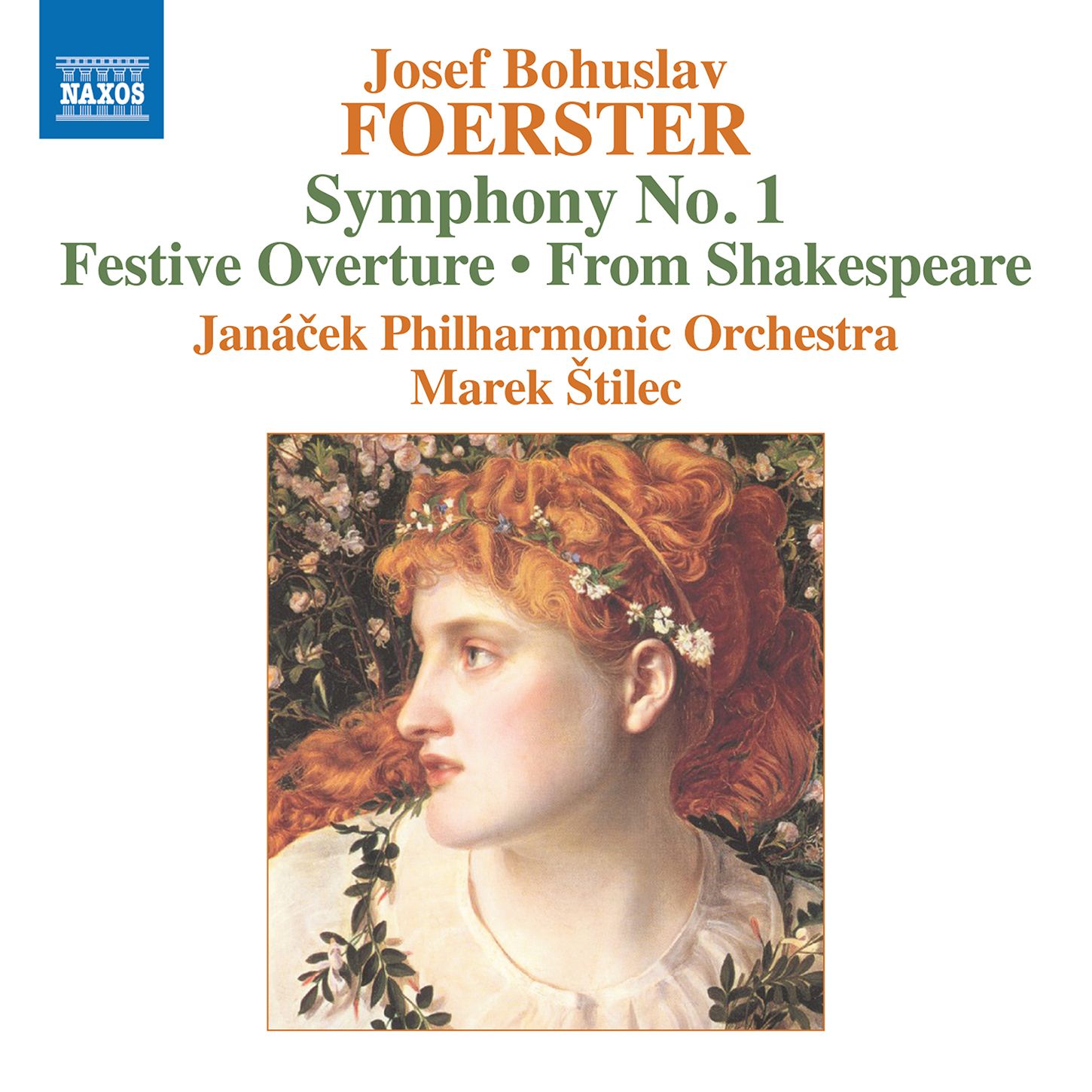Josef Bohuslav Foerster: Orchestral Works
Lovers of Czech music should not hesitate ...... .

Josef Bohuslav Foerster was a significant figure in Czech music, the successor to Dvořák as organist in Prague, and a friend of Mahler.
The orchestra used on this recording, the Janáček Philharmonic Orchestra, dates back to the first half of the twentieth century, and the founding of a radio orchestra in Ostrava - they performed with such composers as Stravinsky, Hindemith and Prokofiev.
Here is a nice promo video that includes background on the orchestra and the conductor, as well as including snippets from thsi present disc:
The Festive Overture is a wonderfully spicy piece harmonically, and yet includes moments which can only be described as uniquely Czech. Foerster's harmonic language is uniwue, I would suggest, moving easily between tonal fanfares and mroe sophisticated, complex texures. It was written for the opening of a theatre near Prague in 1907, Occasionally, it feels like there is an Elgarian theme which could be marked 'nobilmente' bursting to get out, but it never quite makes it to daylight .... instead climaxes seem to recall Smetana, perhaps because the two composer's way with scoring is similar:
The First Symphony was written 1887-88. It is a remarkable work, on the surface traditional in its four movements, even to the exent of a slow introduction to the first movement. My ears tell me this is a post-Dvořák world, almost as if someone took a symponic fragment from that master and rook it forward harmonically a decade or so. The sense of invention is palpable, and reflected in Czech specialist Marek Štilec's performance. The Janáček Philharmonic Orchestra finds lyricism wherever they can, as well as a sense of the grand as the first movement approaches its peroration. Šticlec's sense of detail is another contributiong factor - we hear Foerster's harmonic processes beautifully, and that adds significantly to the experience.
The two flamking movements of the symphony are the longest, but there is no doubting the very individual lyricism of the Andante sostenuto, the second movement:
The Scherzo is fascinating, with some beautiful imitative/fugal writing within the context of a pastoral imtermezzo/Scherzo cross. Kudos to Stilec and his orchestra for managing this fascinating hybrid so well:
There seems to be just a touch of added reverb to the opening of the finale that robs it a little of its “energico” marking (the performance is full of vim though). There is a nice sense of cyclic structure here, with references to the first movement built into the finale's trajectory. The performance though is faultless: Stilec impels his players to great heights, and he really understands the music's ontours - witness the remarkable moment of brass internalisation just bars before the close of the symphony and how he makes total sense of that.
Here is a video from the sessions for the finale:
Za Shakespeara (From Shakespeare), dares from 1908-10, and offers portraits of several of The Bard's heroines and heroes (Perdita, Winter's Tale; Viola, Twelfth Night, Lady Macbeth (Macbeth), and, in the fourth and final movement, Katharina, Petruchio and Eros (The Taming of the Shrew). This 26-minute Suite is full of delight - I particularly like the woodwind writing in “Perdita,” where it is easy to think of Foerster as a sort of Czech Mendelssohn:
There is drama aplenty in “Viola,” a mini symphonic poem in its concentrated breath and strong contrasts:
Foerster's depiction of Lady Macbeth via a glorious Andante sostenuto is remarkably varied, showing her grace as well as her dark side, the performance here beautifully sculpted by Štilec:
There is wit aplenty in Foerster's finale, performed with real vim and affection here.
This is early 20th-century music, tonally-based with an individual stamp and the ability to mine chromatic resources without morphing into post-tonalism. A lovely, varied disc and a unique coupling (some collectors may be familiar with the Osnabrück orchestrra's performances of Foerster symphonies on Dabringhaus & Grimm). Lovers of Czech music should not hesitate ... .
